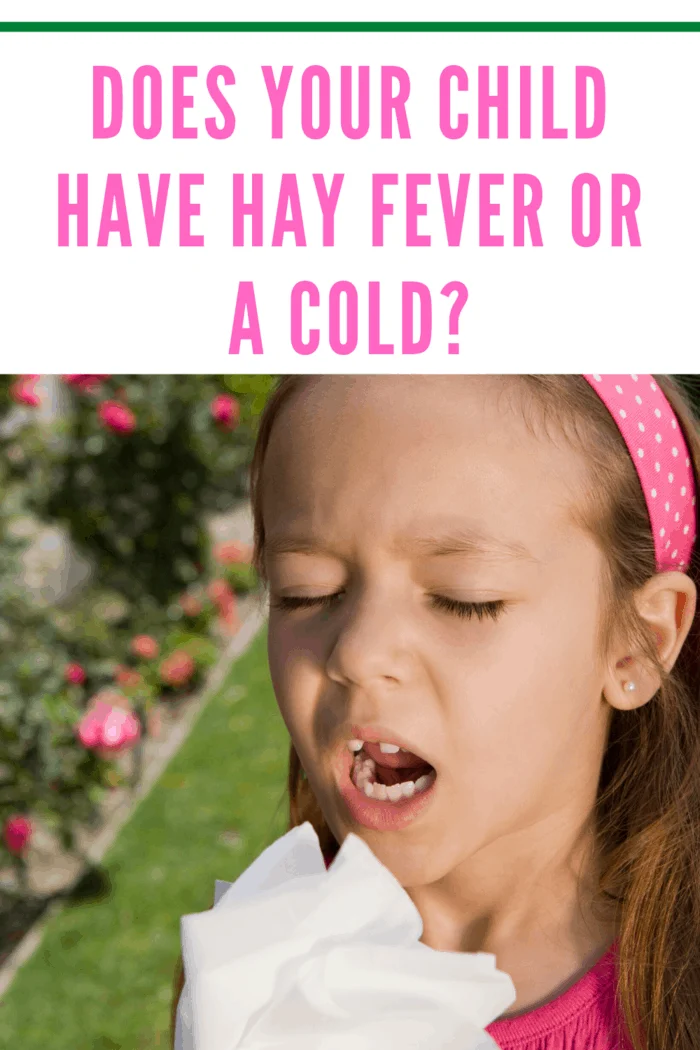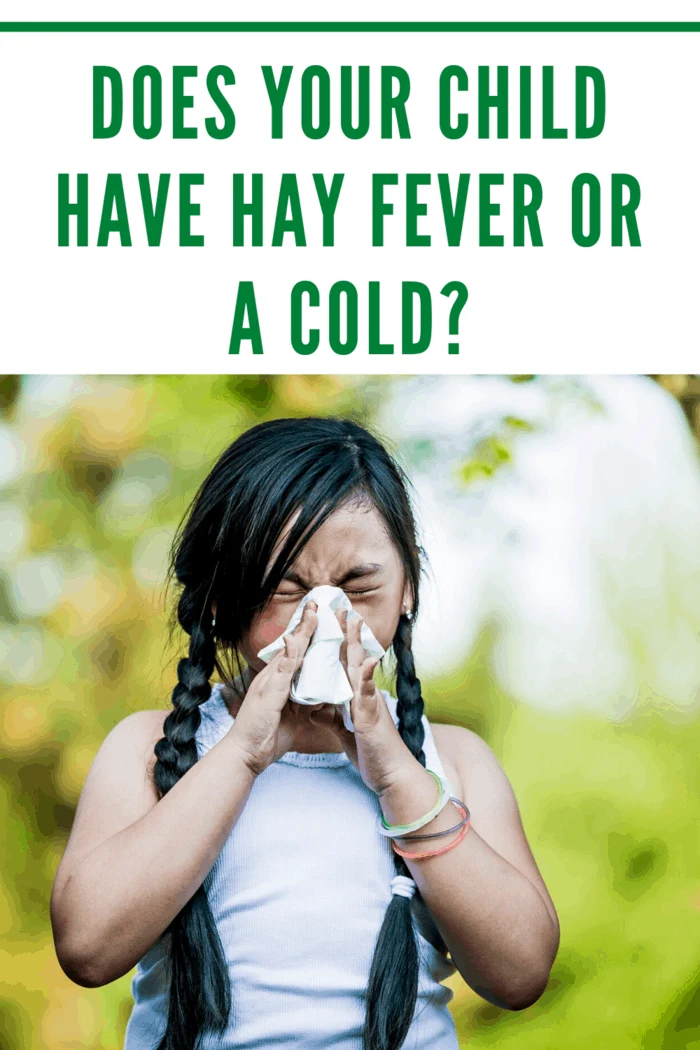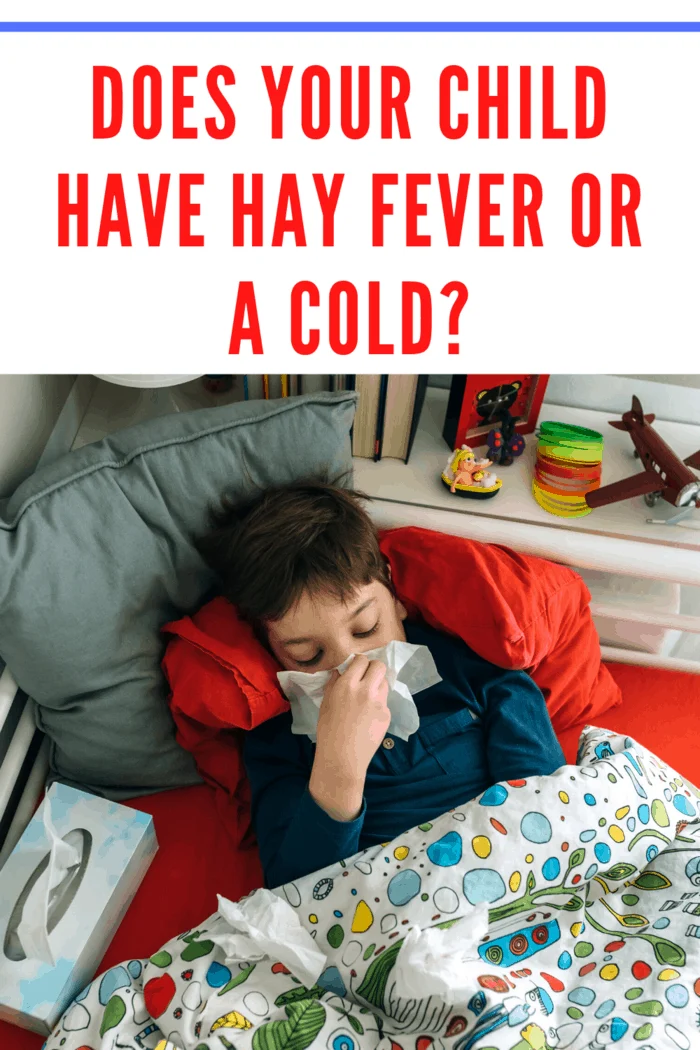Waking up with a runny nose is a common experience, especially during the cold months, and it occasionally combines with other symptoms such as sneezing. It is sometimes hard to understand the underlying cause of these symptoms. Is it a cold or an allergic reaction? Hay fever or a cold? These two conditions are easy to confuse because they share some symptoms. Both conditions fall under the same clinical category of Rhinitis, meaning they cause inflammation and irritation of the nasal cavity. It is important to understand the difference between these two conditions to avoid treating your illness with the wrong medicine.

Does Your Child Have Hay Fever Or A Cold?
The Similarities
Hay fever is an allergic response to environmental irritants such as dust or pollen and cannot spread from one person to another.
A cold, on the other hand, is a viral infection of the upper respiratory tract and spreads through contact with infected areas or when an infected person coughs or sneezes.
The reason why you feel similar symptoms for both conditions is the fact that the body enacts a similar immune response for the two conditions.
The body activates T cells to fight and destroy any foreign substances detected by the cells in the nasal cavity.
The irritants in allergic reactions trigger the immune system in the same way as the cold viruses.
The production of histamines and antibodies causes nasal inflammation, runny nose, and an impaired sense of smell.

How to Tell the Difference
Both conditions may have similar symptoms such as a stuffy nose, sneezing, and coughing, but they also have some distinguishing characteristics.
One of the differences is the color of mucus.
The discharge in colds is typically yellowish while it is clear in allergies.
Facial itchiness is a symptom that is only felt by those with allergic reactions, meaning you should drop the cold medicine if you experience it.
People who have experienced a sore throat for some days should rule out allergic reactions because this symptom is most likely a precursor to cold.
It is important to note that allergic reactions are a seasonal thing, so you can rule out hay fever if you have these symptoms when it is not pollen or dust season.

Hay Fever Prevention and Treatment
Luckily, you can protect yourself from allergies through simple actions such as changing clothes and taking a shower after being outdoors and keeping window curtains shut when you are indoors.
You can also avoid drying clothes outside during the pollen season and ensure that you regularly dust and vacuum your home.
People who have already started experiencing the symptoms can visit a hospital for further testing and treatment.
The doctor will conduct a physical examination or recommend an allergy test.
Medical practitioners can use a skin prick test or an allergy blood test to determine your allergens.
Over-the-counter medicines are usually enough for relief, but people with worse symptoms may need prescribed medication.
Oral antihistamines work for patients with a mild or moderate allergic reaction.
Other effective treatment options include decongestants, nasal sprays, eye drops, and immunotherapy.

Cold Prevention and Treatment Options
People with a common cold can simply wait for their immune system to fight the virus because it is not life-threatening.
Treatment is not necessary, but people look for treatment options because the condition affects the quality of life.
You can use some over-the-counter medications like paracetamol and ibuprofen whenever the symptoms are unbearable.
These drugs don’t cure a cold, but they help relieve some symptoms.
You can also relieve the symptoms through natural means like taking time to relax, staying hydrated, getting plenty of sleep, and eating foods that will boost your immune system.
We hope this article helps determine whether your child has hay fever or cold.
